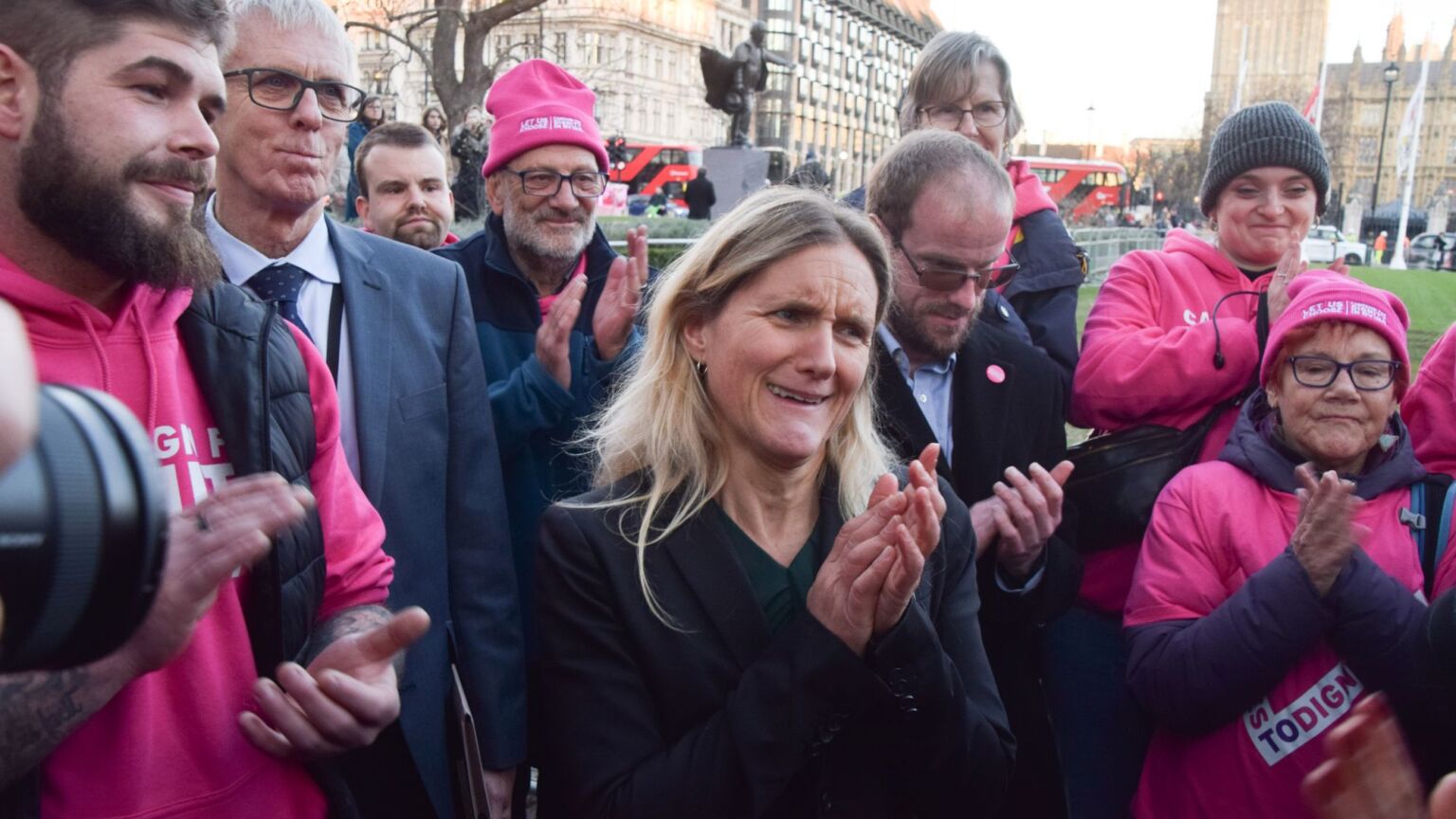The moral horrors of ‘inclusive’ assisted suicide
The ‘assisted dying’ bill will make it as easy as possible for disabled, ethnic-minority and poor people to kill themselves.

Want unlimited, ad-free access? Become a spiked supporter.
Presumably, the UK government had hoped it could quietly slip out the impact assessments for the assisted-dying bill without anyone noticing. Two reports were published on the Friday just before the bank-holiday weekend, and just after the results of the Runcorn by-election and other local elections. Clearly, no one was supposed to read them.
The prospect of Kim Leadbeater’s Terminally Ill Adults (End of Life) Bill passing and making assisted suicide legal in England and Wales is already horrific enough. Now we have a better idea of what the government expects a state-run suicide service to look like in practice.
The first report callously sets out the financial savings that might be made when terminally ill patients can opt to kill themselves. It estimates that the NHS could save up to £10million in ‘unutilised healthcare’ within the first year of the law coming into effect. After a decade, it could apparently save up to £59million.
The second report is the Equality Impact Assessment (EQIA), which makes for bizarre and chilling reading. The civil servants who wrote this were not, as you might have hoped, concerned with protecting the disabled or mentally ill from wrongful deaths, nor with preventing a disproportionate number of suicides among those from a lower socioeconomic status or ethnic-minority background. Instead, they were worried about the barriers that might prevent people from these disadvantaged groups from accessing an assisted-dying service.
The report dutifully considers how those from lower socioeconomic backgrounds, those whose first language is not English and even ‘pregnant persons’ can overcome any barriers that might be put in their way to killing themselves. It makes a point of saying that ‘the bill does not discriminate against transgender people and provides equal opportunity to access this service’. For those who are worried about the ‘inclusivity’ of assisted suicide, this is presumably supposed to be reassuring.
The greatest worry of the report seems to be that disabled people might face extra problems trying to kill themselves. ‘As with other healthcare service areas’, it reads, ‘some disabled people may face barriers in accessing this voluntary assisted-dying service’.
You might have assumed it would be a good thing that disabled people cannot easily kill themselves. And yet, the EQIA goes on: ‘Persons with learning disabilities or deaf persons are examples of disabled people who may struggle to understand the information provided to them in written or oral form.’ At this point, the report explains that the bill already provides a solution to this supposed problem. It allows those with disabilities to appoint a proxy ‘to sign the declaration on their behalf, where they are unable to sign their own name’.
The EQIA also worries that ‘other people with mental illness may have capacity as defined in the [Mental Capacity Act] but may not be able to express a clear, settled and informed wish to end their own life, due to their mental illness (for example those with bipolar disorder)’. It is truly incredible that anyone was able to write these words without reflecting on the dark meaning therein. There is certainly no indication in this report that it might actually be a bad thing for the state to assist people with mental-health problems to commit suicide.
Worse still, the report suggests that the scope of assisted-dying legislation will need to be expanded in the future, offering a glimpse of how the Equality Act could be used as a battering ram against the bill’s paltry safeguards. Currently, Leadbeater’s bill only allows assisted suicide (where the patient must self-adminster the life-ending substance) and not euthanasia (where the doctor gives a deadly injection). But the report worries about a hypothetical patient with ‘a coexisting disability such as Parkinson’s disease, muscular dystrophy or multiple sclerosis [that] can impact their mobility and prevent them from self-administering a [poisonous] substance’. This, of course, leaves the door open to euthanasia, on the logic that if the patient cannot self-ingest, it would be contrary to the Equality Act for the doctor not to administer drugs or to provide a lethal injection.
The EQIA then asks how the government might help more people living in poverty and even homelessness to kill themselves. Specifically, it considers the problem of those who do not have the two forms of ID required by the bill. This, it says, ‘may have a cost impact on some people living in poverty and those classed as homeless or rough sleeping’. Should the report’s advice be heeded then truly everyone in society – even homeless drug addicts – may soon be able to access assisted suicide with ease. It is a proactive version of Ecclesiastes’s idea that all ‘share a common destiny… the good and the bad, the clean and the unclean… will die’.
This report gives us a frightening glimpse into our future if the assisted-dying bill passes. It shows how ‘barriers to access’ – otherwise known as ‘robust safeguards’ – will fall like lemmings over a cliff. No wonder the government wanted to bury it.
Kevin Yuill is emeritus professor of history at the University of Sunderland and CEO of Humanists Against Assisted Suicide.
You’ve hit your monthly free article limit.
Support spiked and get unlimited access.
Support spiked and get unlimited access
spiked is funded by readers like you. Only 0.1% of regular readers currently support us. If just 1% did, we could grow our team and step up the fight for free speech and democracy.
Become a spiked supporter and enjoy unlimited, ad-free access, bonus content and exclusive events – while helping to keep independent journalism alive.
Monthly support makes the biggest difference. Thank you.










Comments
Want to join the conversation?
Only spiked supporters and patrons, who donate regularly to us, can comment on our articles.